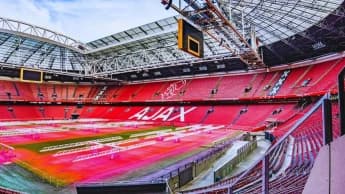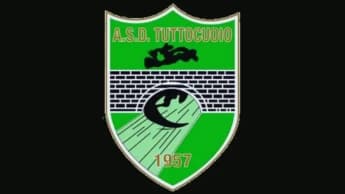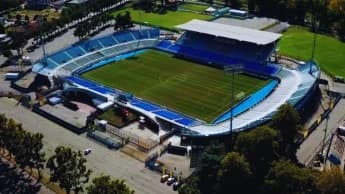
Brescia Calcio, founded in 1911, embodies a spirit of perseverance and tradition. The club’s journey through Italian football reflects resilience amidst challenges, aiming for future success.
Brescia Calcio, endearingly referred to as Brescia, is a football club with a rich heritage in Italian football. Established in 1911 and located in Brescia, Lombardy, the club has been a significant presence in Serie B, holding the records for both the most total seasons and the longest consecutive seasons in Italy's second division. With its distinctive blue-and-white colors and the notable 'V' emblem on their jerseys, the club epitomizes tradition and perseverance. Brescia's home stadium, the Stadio Mario Rigamonti, named in honor of a local football legend, has a capacity of 19,550 and echoes the fervor of its supporters.
The club has experienced its share of triumphs and tribulations, from the thrilling era of Roberto Baggio's captaincy to the struggles of relegation. Brescia’s identity is deeply rooted in determination and pride, embodying their motto of never backing down, regardless of the challenges they face. Their enduring rivalry with Atalanta infuses their identity with intensity, ensuring that every match serves as a demonstration of their relentless spirit.
Achievements of the Team
Although Brescia Calcio's trophy cabinet isn't filled to the brim, the club has achieved some noteworthy milestones. They possess a unique record of 64 seasons in Serie B, including an impressive streak of 18 consecutive seasons from 1947 to 1965. Brescia has claimed the Serie B title four times, highlighting their prowess in Italy's second tier.
In 1994, Brescia achieved a landmark victory by winning the prestigious Anglo-Italian Cup, which stands as the club's most notable international accomplishment. The signing of Roberto Baggio in 2000 propelled the team to new levels, culminating in an impressive eighth-place finish in Serie A during the 2000–01 season—marking their finest performance ever in Italy’s highest division. In that same year, they reached the final of the Intertoto Cup, ultimately falling to Paris Saint-Germain due to the away goals rule.
Throughout its history, the club has proudly hosted some of the most illustrious names in football. Legends like Pep Guardiola, Andrea Pirlo, and Gheorghe Hagi have worn the Brescia jersey, contributing to its rich legacy. The team's promotion to Serie A in the 2018–19 season showcased their strength and capacity to recover from challenges.
Strengths and Limitations
The enduring strength of Brescia lies in their capacity to adapt and reconstruct. Their consistent performance in Serie B reflects a solid foundation and a devoted fanbase that provides unwavering support. The club's rich history of fostering talent, including stars like Andrea Pirlo and Mario Balotelli, highlights their ability to recognize and develop exceptional players.
Nevertheless, Brescia's primary weakness has been maintaining their success in Serie A. Even with a few encouraging seasons, they have faced relegation challenges, frequently returning to Serie B. Their financial limitations and fewer resources in comparison to larger clubs have further impeded their efforts to draw in and keep top-tier talents.
One of their key strengths is their tactical versatility, developed over many years of moving between different divisions. Brescia’s ability to bounce back and adapt makes them a tough contender in critical matches. However, issues of inconsistent performance and a lack of depth within the team remain pressing concerns that need to be addressed to ensure a more promising future.
Tactics and Style of Play
Brescia employs a tactical style centered on a well-balanced, possession-based approach to the game. Traditionally, they have depended on a creative midfield to control the flow of play, a strategy that was particularly successful during Roberto Baggio’s time with the club, when the team thrived under his leadership and playmaking skills. The club tends to prioritize technical players capable of providing exceptional moments of skill and creativity.
Defensively, Brescia exhibits a strong sense of discipline, frequently employing a compact backline to counter more formidable opponents. Their counter-attacking approach has become a defining feature of their playstyle, particularly when facing the giants of Serie A. Brescia's capability to adjust their tactics according to the rival has been crucial for their longevity in the sport.
Nonetheless, inconsistency in their performance has been a concern. Although their attacking play can be thrilling, the absence of a reliable goal scorer has limited their ability to capitalize on opportunities. Moreover, moments of defensive lapses have led to the loss of vital points.
The current team showcases a blend of youthful energy and experienced players, providing the flexibility needed for various formations and strategies. However, in order to ascend back to Serie A and compete successfully, Brescia must find the right balance between a strong defense and an agile attack.
Memorable Matches
Brescia has participated in numerous memorable matches that have contributed to their legacy. Notably, the 2001 Intertoto Cup final against Paris Saint-Germain exemplifies their capacity to compete on a European level. Despite a commendable performance, they fell short of securing the trophy under the away goals rule, marking a poignant chapter in their history.
A memorable moment in history occurred during the 2000–01 Serie A season when Roberto Baggio executed a stunning free kick against Juventus, solidifying his legacy as a Brescia icon. That match showcased the club's remarkable capability to rise to the challenges posed by more formidable rivals.
The victory in the Anglo-Italian Cup in 1994 is still a beloved memory among fans. Brescia's success in this international competition marked a rare moment of glory, showcasing their ability to achieve greatness beyond the realm of domestic football.
The match that secured promotion against Torino during the 2009–10 Serie B playoffs stands out as a remarkable event. This achievement marked their return to Serie A after enduring numerous challenges, highlighting the team's resilience and commitment to regaining their spot in the top division.
Looking Ahead
Brescia's path ahead relies on reconstruction and strategic investment. It's essential to enhance the team with a blend of seasoned players and emerging young talent to fulfill their aspirations. Their youth academy, known for producing talents such as Andrea Pirlo, continues to be a crucial resource for cultivating future football stars.
The club's leadership should prioritize financial stability and the enhancement of their infrastructure, particularly improving their home stadium, Stadio Mario Rigamonti, to align with contemporary standards. A strategic long-term plan is crucial to breaking the ongoing cycle of promotion and relegation and to position Brescia as a reliable competitor in Serie A.
From a tactical perspective, the team needs to adapt in order to compete with the top teams in Italy. This involves embracing modern football strategies and utilizing data analysis to enhance their tactics. By introducing a more dynamic attacking style, they could achieve improved outcomes in critical matches.
Brescia possesses a dedicated fanbase and a storied past, providing them with a strong foundation to strive for greater achievements. Although there are obstacles to overcome, their unwavering spirit and determination could lead to a resurgence in Serie A and potentially greater success on both national and international stages.





